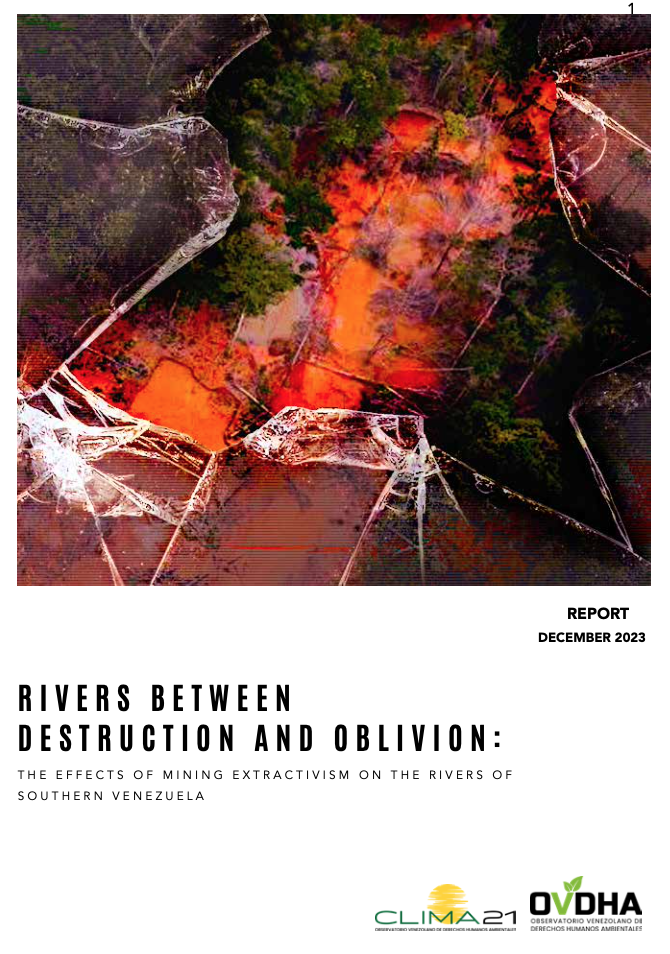Rivers hold a fundamental value to human populations because of their contributions to all
aspects of people’s lives. For this reason, a close relationship exists between human rights and the
health of these ecosystems. However, the rivers of the Venezuelan Amazon are at serious risk due
to the impacts of mining.
This report aims to contribute to the understanding of the socio-environmental situation of the
rivers of southern Venezuela and the current impact of the extractive mining industry on them.
Below are the main findings of our work:
Illegal gold mining is the main threat to the rivers of southern Venezuela. Although the damage
dates back to more than a century ago in some cases, it has increased significantly in the last 20
years. For this reason, more than thirty rivers in the south of the country are being affected by this
activity (a 106% increase in 6 years) while the use of mining rafts has been documented in 16 of
them. All major basins are threatened by sedimentation and mercury pollution from gold mining.
In the basins of the Cuyuní, Caroní and Caura rivers, there is evidence of the negative effects of
this form of pollution on human populations. None of the Protected Areas in the south of the
country seem to be meeting their objective of preserving the ecosystems included in their
territories, including the rivers that cross them.
In the case of bauxite mining, the environmental liabilities of the industry pose a serious threat to
the Orinoco River and the population living on its banks. Regarding the mining of coltan, the
government’s opacity prevents the grasp of the magnitude of the impact generated by the activity.ç
Based on the information available, an approximation was made to the health of the ecosystems
of a group of large rivers in southern Venezuela. Only the Cuyuní River appears to be in critical
condition, but in most cases, there is evidence of a significant deterioration of their health.However, the lack of updated data prevents a thorough assessment of the current situation.
This situation of river degradation might worsen with the impacts of climate change forecasted for
the southern region of Venezuela. Even though their extent is not known in detail, they will very
likely have a negative impact on the region’s waterways.
No information is available that the Venezuelan State is taking effective and sustained action to
protect the fluvial wealth of the south of the country.
Not only has the Venezuelan State the task of acting in these situations and protecting the
environment and the rights of the population in the region but also the future mission of
advancing toward the recognition of rivers as subjects of law.
Based on this situation, a series of recommendations are made to the Venezuelan State, including
the elimination of mining extractivism, the observance of environmental protection standards, the
environmental re-institutionalization of the country, the support for scientific research, the
ratification of the Minamata Convention, the adoption of the Escazú Agreement and the
discussion of the recognition of the rights of Venezuela’s rivers, particularly the Orinoco river.
You can access the full report below.


